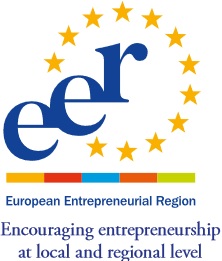 newsitems
newsitems  How France+Germany led to proEuropean Vote opposed to Turkey's bid, that others lost to eurosceptics
How France+Germany led to proEuropean Vote opposed to Turkey's bid, that others lost to eurosceptics
How France+Germany led to proEuropean Vote opposed to Turkey's bid, that others lost to eurosceptics
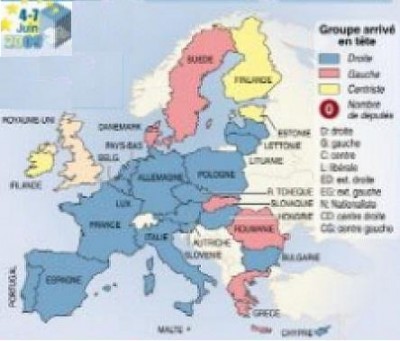
The "key" of France's, Germany's, and some other EU Countries', "success" to attract People opposed to Turkey's controversial EU-bid into pro-European mainstream politics, instead of losing them scattered around Euro-Sceptic and/or Extremist parties, as in the UK, Netherlands, Austria, Hungary, Bulgaria, etc, was clearly explained to "EuroFora" by Young Foreign Policy Expert and new MEP Arnaud Danjean, of the 2009 Winner in France, the Governing coalition UMP :
- "For the first time in France, the 4 biggest Parties are all pro-Europeans" on 2009. "This is important, because in the Past we used to have also some very anti-European, Populist parties in France. But now, the People who voted feel that Europe is a necessity today", Danjean stressed. - "I am very satisfied of the results of our party (UMP), which is a success of Sarkozy's way to manage EU policy"
- "By having a clear stance on EU's Borders (i.e. also on Turkey), may be this did help to attract voters that were not sure to vote."
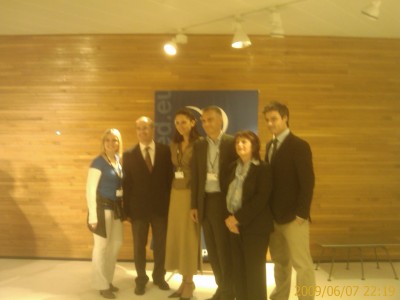
- "I would see this as a Warning. We've developed strong Arguments for a Political Europe, within strong Borders. And that makes a Consistent position. We didn't speak about Turkey as Socialists did", (i.e. in a supreficial manner, cut off from EU Citizens' concerns).
- "I think that all over Europe, you shall see the same : The parties who have spoken (on that) with Credibility, Realism, Pragmatism, these are the parties from the EPP And, compared to this, the Socialists have chosen to be very Ideological, while we have been very Pragmatic" (on Turkey). "And this is a Key-issue. It was a Key-issue of Sarkozy's policy. And this is the Key of Success".
National Front's vice-President, French MEP Bruno Gollnish, former Group Chairman in EU Parliament, speaking to "EuroFora", stroke back : - "There was no real debate in this campain", he claimed. And "those People who were really critical of the system abstained, because they thought that if they had voted, they would have conforted a system they contest without being able to change it".
- "It's obviously a Failure !", criticized French Socialist Senator Roland Ries, (and mayor of Strasbourg), for his own party's (PS') performance in 2009 EU Election. Both in France and "in all Europe, people must find a new meaning for a pro-Socialist vote", he advised.
-------------------
FACTS :
----------------------
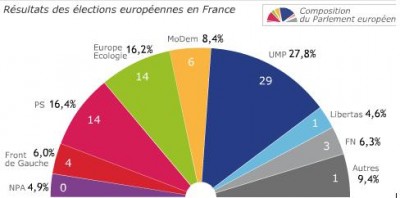
- In France, President Sarkozy's governing majority union UMP (EPP), who focused its campain on the development of a strong and popular Political Europe, with Identity and Borders incompatible to Turkey's controversial EU bid, won more than expected with some 28%, largely distancing the Socialist party which surprisingly fell down to only 16% (equal to "Greens") ! Significantly, in the only Constituency in which a PS list had a Turkish-origin candidate (East), it surprisingly fell to the lowest level, outpaced even by "Greens" ! Taken all together, the Parties who oppose Turkey's entry into the EU, represent a Majority with more than 54%; (without taking into account 40% of PS' own voters, reportedly opposed too) : A number which confirms Sarkozy's brillant win at the 2007 Presidential Election, after a "hot" TV-debate on Turkey : 53%. But all others are scattered around in small quantities, without any comparison to UMP's big result.
- In Germany, Chancellor Merkel's CDU/CSU (EPP) coalition, led by outgoing EU Parliament's President Hans Gert Poettering, (who consider Turkey's EU bid as incompatible with EU's Borders and Values) won a biggest than expected Victory with 38%. Her Bavarian ally, the Christiansocial party CSU, whose leader Seehofer asked "a Referendum on Turkey", boosted its votes winning more than 48% in its Bavarian stronghold, (7,3% nation--wide). If CDU's score was - 5%¨less than what it did in 2004, it might be partly due to voters' reaction to controversial local Hessen politician Koch's attempt to impose, for the 1st time, a Turkish lobby's candidate. This fits with the fact that Socialist SPD (very pro-Turkey since 2002), with 3 Turkish candidates in 2009, fell down to only 20% : a Record Low ! Liberals of the FDP (a possible coalition partner with CDU/CSU in the forthcoming September 2009 National Elections), after their leaders, (fex. MEP Lambsdorf) multiplied Criticism on Turkey's Violations of Human Rights, won some + 5% (growing up to 11%). But, despite the Economic Crisis, "Greens" stagnated, and the Left won only +1%...
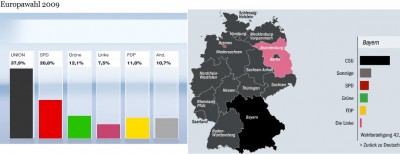
- In Spain, EPP's Popular party, whose program stresses that EU is "now" in "a stage of Consolidation" and "Assimilation" after the 2004-2007 Enlargements to 12 more Countries, and that "Enlargement requires for the EU to have sufficient capacity to integrate new members", who "must fully meet the conditions", while it also "supports the possibility of Other possible Formulas and possible means of Association to the EU", (fex. privileged Partership), speaking on Turkey, won the EU Election with 42% : A clear difference to 38% for the governing PSoc, which remains in support of Turkey's controversial EU bid.
- In tiny but symbolic Cyprus, frontrunner MEP of EPP (DHSY-opposition) party, Kasulides, (who lost the 2008 Presidential race), now wins the 1st place, after a statement in favor of Sarkozy and Merkel's stance against Turkey's controversial EU bid. Voters chose also a 2nd DHSY MEP critical on Turkey (Helen Theoharous). For the 1st time, Cyprus' Socialist party (EDEK : more critical on Turkey than others), succeeds to elect a MEP, choosing a strong critic on Turkey, former Defence Minister Mavronicolas, while "softer" canditates lost. The governing AKEL party (Left), favorable to the "full compliance with EU conditions - full access in the EU" stance on Turkey, lost some ground (falling to 2nd place), but kept its MEPs. Because critical "Euro-party" (unique in 27 EU Countries to identify itself with EU's Human Rights, etc. values) shortly missed the threshhold for 0,3%, despite augmenting its votes.
-----------------------------------
On the contrary, when mainstream parties didn't integrate Citizens' opposal to Turkey's controversial EU bid, they lost voters who went towards various other, more Critical parties :
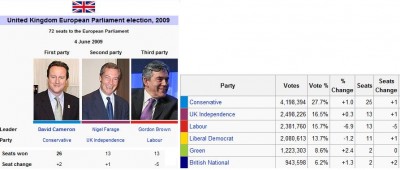
- The most loquacious example is that of the UK : The expected 1st place of Cameron's Conservative party, (27%, with a Cypriot-origin lady among its candidates), was eclipsed by the surprising rise of Nigel Farage's "Independence" party (Ind/Dem) : 16,01% which became.. the 2nd party in the UK, extending the number of its MEPs ahead of the governing Labour party (PS : the most favorable to Turkey's bid), which fell down to an abysmal low (15%), almost equalled by Liberals. This astonishing New change cannot be explained by the Independence party's traditional euro-sceptic stance for the withdrawal of the UK out of the EU (in a kind of EEA, as Norway, Switzerland, etc). The only big New factor is Nigel Farage's recent loud statements in Strasbourg that "the IP is he only party in the UK which opposes Turkey's entry in the EU" (March 2009), and his official Critical reply to US President Obama's push for Turkey, in the aftermath of Strasbourg's NATO Summit (April 2009). That's the only big difference between UKIP's huge boost, and other eurosceptic parties, from Conservatives up to the British National Party, (far right), who also won + 2 MEPs for the 1st time.
- In the Netherlands, Geert Wilder's PVV ("Party for Freedom") euro-sceptic party became the 2nd bigger in the country, winning + 4 MEPs, shortly after he notoriously withdrew from another group "because he didn't agree with its policy on Turkey". EPP, mildly Critical on Turkey, maintains a lead over Socialists (committed to Turkey's bid) which diminish, but loses many of its former voters who went this time for the PVV.
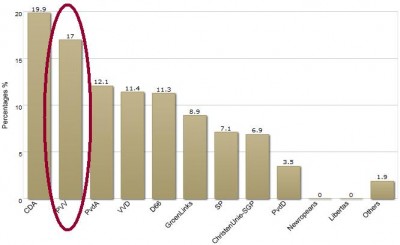
- In Austria, mainstream OVP (EPP)'s promise to hold a Referendum on Turkey's bid succeeded to give it the 1st place, the pro-Turkey PS (SPO) seriously loosing ground. But the biggest rise is a combined boost of 3 Populist right's parties, Peter Martin's and Haider's (the recently killed politician's) former and current parties FPO and BoZ, which total some 36%. with their outspoken opposition to Turkey's bid, (even if only the 2 first get MEPs, the 3rd arriving at short distance, lacking only 0,3% !)
- In Greece, mainstream parties' continuing stance "full compliance to conditions - full accession in the EU" for Turkey, resulted into a stalemate, reducing PS' advance in only +2%, the governing EPP party limiting its percentage accordingly. But it pushed Citizens to an unprecedented Abstention : 48% (despite sanctions, since the vote is obligatory). It multiplied and doubled LAOS' MEPs, after the Populist party was glad to claim that it's "the only one to follow the Sarkozy-Merkel line" against Turkey's controversial EU bid ( up +3%), and brought "Greens" in EU Parliament for the 1st time.
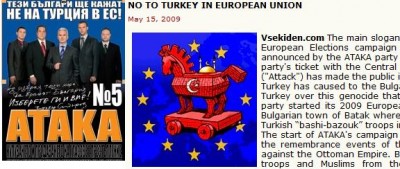
- In Bulgaria, the populist right's ATAKA party wins more than 12%, becoming one among the 4 big parties over 10% and a solid player at the political landscape, after it decided to focus all its 2009 electoral campain under the banner "No to Turkey's EU bid !". On the contrary, PS loses ground, while EPP (1st) grows slightly stronger.
- In Hungary, the ruling Socialist party, (in favor of Turkey's EU bid, as almost all PS), lost - 5 seats, while the "Nationalist" Jobbik party won + 3 MEPs, getting some 15% of votes, dangerously approaching the score of the governing Socialists (17%). Meanwhile, EPP (opposition) wins + 2 MEPs more, totaling 15 MEPs, (compared to PS' remaining only 4)...
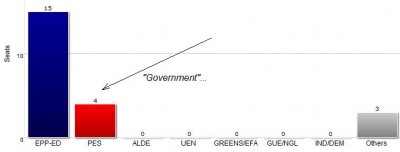
- EuroSceptics are also active in Sweden (whose mainly Liberal government continues to support Turkey's controversial EU bid under conditions), where the "strongly eurosceptic Environmental party" won + 5% of votes more, gaining one MEP for the 1st time. Swedish People elected also the only .. "Pirate" MEP in 27 EU Countries, who struggles against EU's Copyright rules restricting Internet downloading : It gained more than + 7% of votes. Moreover, "Nationalist" anti-Islamic movement of "Swedish Democrats" won +2,2%. Added to "June's list", an older eurosceptical party (4%), "Green" EuroSceptics (11%), "Pirates" (7,1%), "Swedish Democrats" (3,3%), etc. gathered in 2009 much more votes (26%) than .. Swedish Prime Minister Reinfelds' own party (18%) !...

(etc)...
Main Menu
Home Press Deontology/Ethics 2009 Innovation Year EU endorses EuroFora's idea Multi-Lingual FORUM Subscribers/Donors FAQs Advanced search EuroFora supports Seabird newsitems In Brief European Headquarters' MAPs CoE Journalists Protection PlatformBRIEF NEWS
- 00:00 - 02.06.2021
- 00:00 - 18.10.2020
- 00:00 - 19.06.2020
- 00:00 - 18.05.2020
- 00:00 - 20.04.2020
- 00:00 - 02.02.2020
- 00:00 - 09.12.2019
- 00:00 - 27.11.2019
- 00:00 - 16.11.2019
Popular
- Yes, we could have prevented Ferguson riots says World Democracy Forum's Young American NGO to ERFRA
- Spanish People Elect CenterRIGHT Majority with 1st Party and Total of 178 MPs (6 More than the Left)
- Pflimlin's vision
- The European Athletic "Dream Team", after Barcelona 2010 Sport Championship Results
- Source Conseil d'Europe à ERFRA: Debatre Liberté d'Opposants à Loi livrant Mariage+Enfants à Homos ?
- Head of BioEthics InterGroup, MEP Peter Liese : "Embryonic stem cell research reaching its END" !?
- Spain: Jailed Turkish Terror suspect with Explosive,Drones,Chechen accomplices stirs Merah+ Burgas ?
- UN Head Ban Ki Moon at CoE World Democracy Forum : - "Listen to the People !"
Latest News
- EUOmbudsmen Conference 2022: Digital Gaps affect People's Trust threaten EF Project on EU Future ?
- French Election : Black Out on Virus, but Obligation for Fake 'Vaccines" Challenged
- Both French Presidential Candidates point at "Humanism" in crucial times...
- France : Zemmour = Outsider may become Game Changer in Presidential + Parliamentary Elections 2022
- PACE President Cox skips Turkey Worst (Occupation) case compared to Russia (DeMilitarisation) query
Statistics
Lankytojai: 59497856Archive
Login Form
Other Menu
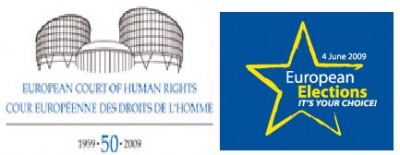
Ten Years of ECHR : 1998 - 2008 show need of Revival in 2009-2010 coinciding with 2009 EU Election
A threefold, coordinated move by new Top French Political actors in the 2009 EU Parliament Elections, expressed in Strasbourg a will to boost Europe's Political dimension close to Citizens' concerns, going from protection of Economy to defence of Human Rights.
The move met an exceptional ECHR's call for a "revival" of Human Rights' protection mechanism', in a Mega-Conference, early 2010.
Obviously focusing on June 2009 Elections to EU Parliament, it involved from the outset the recently nominated "dual" Head of French Governing Party (UMP) Michel BARNIER and Rachida DATI :
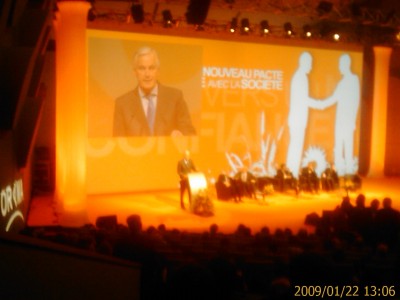
- "As President Sarkozy has clearly said, we (France) are in favor of a Strong, Sovereign and Independent, Political Europe, which protects its Citizens, and not for a large Super-Market, nor for a Europe under influence",
"This goes for everything, including Energy", added to "EuroFora" the experienced former EU Commissioner, Minister of Foreign affairs, currently of Agriculture and Sarkozy's new pick as Leader of the Governing party UMP to EU 2009 Election, Michel BARNIER .
- Human Rights are important because they are at the Heart of the Political Europe that we aspire for : I.e. a Europe able to act and protect its Citizens, stressed also the New French Minister for European affairs, Bruno LE MAIRE, while meeting Strasbourg's Journalists at his first visit to the CoE.
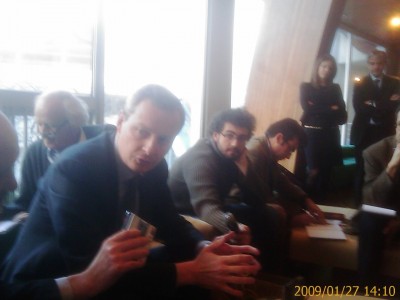
This is one of the main interests for CoE, which is also a natural place for cooperation between EU countries and Russia or Turkey, which was recently helpful at the Middle East crisis, he added.
The move gained momentum with French Minister of Justice, Rachida Dati's main observations at ECHR's 5Oth Anniversary :
- "While we are seeking Europe's Borders and Identity, you (ECHR) remind us also of its Values", Human Rights, Dati noted.
Citizens seek more and more often ECHR's help, and the tempo accelerates, Europa awaits a symbol, while national legal orders are not freezed
And she expressed "support" to ECHR President Jean-Paul Costa's call to satisfy the vital need to revigorate the PanEuropean Court by deciding big changes at a High-Level Conference open to a large audience, a kind of "Etats Generaux" of Human Rights, at the beginning of 2010.
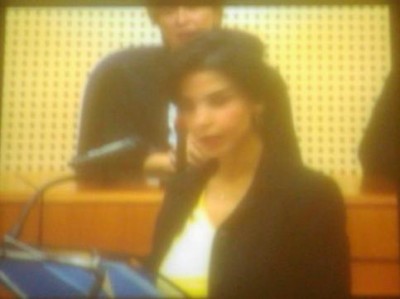
It's not so much the recently growing number of applications for Russia or Ukraine etc, which seems to be Costa's main concern : In fact, the cases declared "admissible" are much fewer...
But rather the persistent violations of Human Rights, sometimes very grave (ie. murders, torture, abritrary deprivation of liberty, oppression of freedom of speech, destructions of homes/properties, etc), despite numerous, repeated condemnations by ECHR. So that CoE's Ministers, due to "supervise execution" of ECHR's judgements, are overloaded.
F.ex. most Media noted that Turkey still remains, even in 2008, the 1st among 47 CoE member States in the number of condemnations by ECHR : 257, compared to 233 for Russia, with a population more than the double..
The problem is that it's not the 1st time at all : During all the last Decade 1998-2008, Turkey was condemned by ECHR much more than any other State, and for particularly grave violations :
- 1.652 condemnations, compared to 605 for Russia, 548 for Poland, 494 for France, 476 for Ukraine, etc.
Italy's second place with 1.394 condemnations is a misleading false appearance : In fact, most of them (999) concern mere "procedural delays" in national courts. Same for France.
On the contrary, Turkey was condemned 180 times for Killings, 192 times for Torture or Inhuman/Degrading treatments, 340 times for arbitrary deprivation of Liberty, 528 times for "Unfair trial", and 169 times for oppression of Freedom of speech, (etc). And the latest, 2008 numbers, indicate no change in this trend, (See supra).
The current Spanish CoE Presidency (November 2008 - May 2009) has made of the implementation of ECHR's judgements its 1st Priority.
ECHR's President, Jean-Paul Costa, stressed in its 2009 Annual Press Conference, CoE Member States' obligation to implement the judgements, according to Article 46 of the European Convention on Human Rights.
Moreover, if CoE's Committee of Ministers delays to ensure implementation, then, the repetition of violations in similar cases provokes a multiplication of complaints tabled to the Court, which overload the mecanism for the protection of Human Rights, denounced Costa.
A series of Debates on "the situation of Human Rights in Europe", focusing on the "need to fight against Impunity" of perpetrators of grave crimes, is currently prepared by CoE's Parliamentary Assembly for the session of June 2009.
The final Timing comes shortly AFTER the EU Elections, but the main Reports should have been adopted before.
Meanwhile, French President Sarkozy and German Chancelor Merkel's recent call "for a Political Europe" in 2009 EU Elections (See earlier "correspondence from Paris, Elysee Palace), seems more and more endorsed also by other EU Countries' Top MEPs :
Thus, f.ex., EU Parliament's 1st vice-President, Greek MEP Mrs Rodi KRATSA, speaking to "EuroFora", agreed that 2009 EU Election would be a "naturally good" opportunity to debate what really interests EU Citizens : "The Future of a Political Europe, able to face the Economic Crisis, with a Culture and identity which attracts the People"
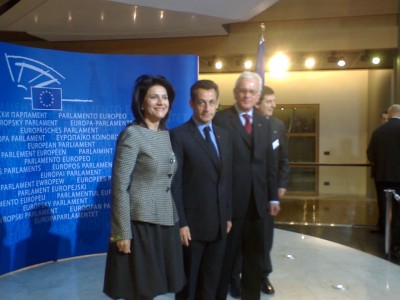
(Photo taken earlier during Sarkozy's 1st visit at EU Parliament, in 2007 : Sarkozy and Merkel's Ideas for a Political Europe inspire also other EU politicians accross the continent)...













